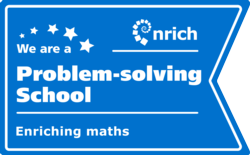Computer Science
Lower 4, Upper 4 and Lower 5 (Years 7, 8 and 9)
At a time when schools are changing quickly, understanding technology's role in our lives is important to everyone.
From AI to mobile phone; dynamic websites to games, technology is not only a motivational force for pupils, but also creates deeper, richer, and more possibilities for building and sharing knowledge.
Computer Science and IT can lead to careers in a huge array of sectors and industries, so a variety of technical and vocational skills are required in the modern world.
A KS3 pupil...
- Will have a basic knowledge of abstraction, logic, algorithms and data representation
- Will be able to analyse problems
- Will be able to write computer programs
- Will be able to evaluate and apply appropriate ICT
- Will become responsible, competent, confident and creative users of ICT
Middle 5 and Upper 5 (Years 10 and 11)
The course will enable pupils to understand and apply the fundamental principles and concepts of Computer Science, including abstraction, decomposition, logic, algorithms and data representation.
A GCSE Pupil...
- Will learn how to analyse problems in computational terms through hands-on involvement in the design, writing and debugging of programs.
- Will learn how to apply relevant mathematical skills to Computer Science and to think creatively, logically, analytically and critically.
- Will come to understand the component elements of digital systems, and how they communicate with one another and with other systems.
- Importantly, they will consider the subject in the wider context, exploring the impact of digital technology upon the individual and society in general.
Sixth Form
It’s relevant to the modern and changing world of computing. The A-Level Computer Science qualification splits learning into three section: Computer Fundamentals, Programming Techniques and Logical Methods, and a Programming Project. A natural progression from GCSE 9–1 Computer Science, it provides the perfect springboard for learners looking at specialising in a computing-based career. Within the course, learners study a range of theory topics, which include the principles and understanding linked to programming, topics such as hardware and software, networks, systems development life cycles and implications of computer use.
A-Level will develop a learner’s ability to...
- Think creatively, innovatively, analytically, logically and critically;
- Apply skills in and an understanding of computing (including programming) in a range of contexts to solve problems;
- See relationships between different aspects of the subject;
- Be aware of emerging technologies and appreciate their potential impact on society;
- Delve into producing graphical user interfaces and object-orientated programming solutions. Through the creation of a Programming Project, students will have the opportunity to create a substantial piece of software using modern design methods and, guided by teachers, they will look to display their skills and talents.
Link to Relevant External Exam Boards
Quick Links
Contact Info
For general enquiries please email
enquiries@norwich-school.org.uk
For admissions enquiries please email
admissions@norwich-school.org.uk
All Rights Reserved | Norwich School | Charity no. 311280





